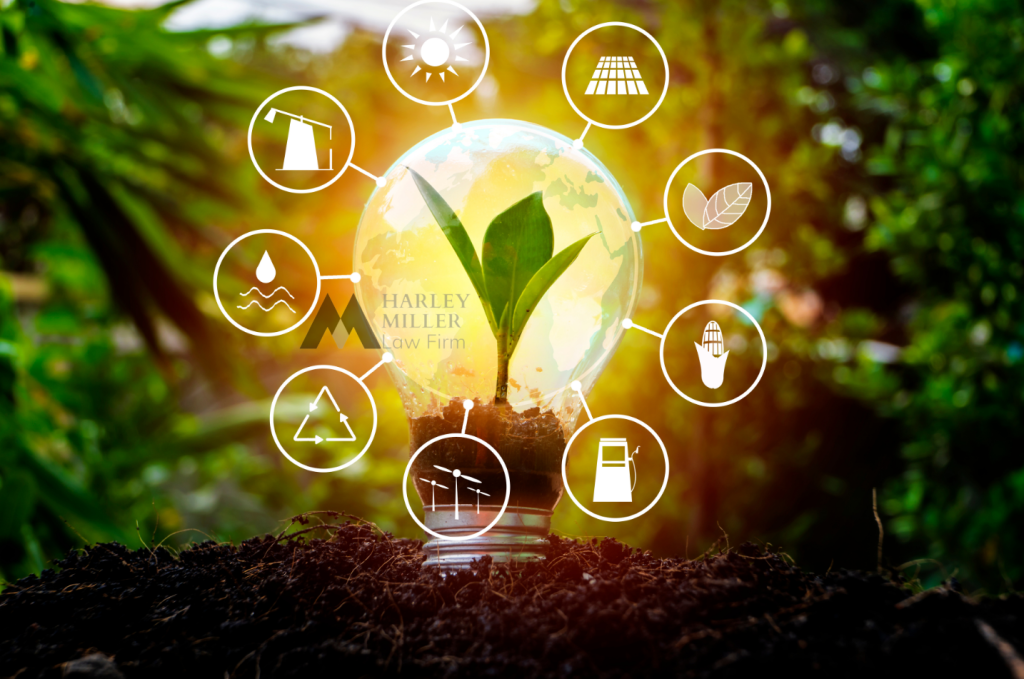Vietnam is striving towards the goal of becoming a high-income country by 2045. In this context, it is forecasted that the demand for energy in Vietnam will continue to increase rapidly in the coming years. The energy transition process to cope with climate change and towards Vietnam’s Net Zero target by 2050 is opening up opportunities for cooperation and investment for domestic and foreign businesses.
The energy transition process in Vietnam
The processes aimed at achieving green growth in countries and global climate change objectives include reducing reliance on fossil fuels step-by-step, increasing the proportion of renewable energy in the national energy supply structure, and reducing greenhouse gas emissions.
The main directions of Vietnam’s energy transition process include:
Firstly, the government plans to implement a fuel conversion plan for existing coal-fired power plants to biomass or ammonia before 2050, and they will also stop developing new coal-fired power plants after 2030.
Secondly, the government will promote the development of gas-fired power sources on a suitable scale to avoid supply and price risks in the world market. Additionally, a gradual shift away from using natural gas for electricity generation to hydro power before 2050 will also take place.
Thirdly, the government will strongly focus on developing renewable energy sources such as onshore and offshore wind power, solar power, while also encouraging individuals and organizations to produce and consume their own energy.
Fourthly, the government will adopt the application of green hydro and ammonia power generation technologies, including the production of hydro and ammonia using domestic wind and solar power sources.
Therefore, the highest objectives of Vietnam’s energy transition process include: ensuring energy security for the country, economy, and people; ensuring access to energy and electricity for the people at reasonable costs; meeting climate change goals; protecting the environment; and fulfilling Vietnam’s commitments to the international community while developing domestic industrial capacity to build an independent and self-controlled economy, alongside international cooperation.

Energy – a crucial demand for economic development
Energy plays a vital role in the economic development and social security of all countries. As a dynamic economy, Vietnam has experienced more than 20 years of continuous economic growth rates of 5.9% – 7% annually, including during the economic downturn of 2006 – 2010 and the global financial crisis of 2008.
In terms of international trade, in 2022, Vietnam’s total import-export turnover reached $732.5 billion, an increase of 10% compared to 2021. Specifically, exports increased by 10.6%, and imports increased by 8.4%, making Vietnam one of the 20 largest economies in terms of international trade turnover.
Therefore, building a suitable, feasible, and sustainable energy development and transition strategy that fits the country’s practical conditions is the most important task for Vietnam. The two most critical and challenging goals are ensuring national energy security in the short and long term to meet development objectives and ensuring access to energy for the people and economy at reasonable costs that align with Vietnam’s development conditions and realistic capabilities.
Promoting cooperation, investment, and technology transfer
Therefore, promoting the rapid and sustainable development of the energy sector to fully meet the needs of people’s lives, encouraging the development of renewable energy sources, and attracting investment from both domestic and foreign investors into the energy sector is a consistent policy of the government of Vietnam.
Researchers and developers globally should take note of the importance and urgency of cooperation in energy science and technology, focusing on large-scale electricity production technology that uses new primary energy sources and advanced energy storage technology. People should also raise awareness about the urgent need for energy-saving and efficient use in all sectors of the economy, starting with those that consume large amounts of energy.
In the context of the world’s accelerated transition to clean and sustainable energy, Vietnam is becoming one of the most potential markets for investment in this sector. With the support policies of the government, investment in renewable energy sources has a great opportunity for development and profit potential in Vietnam. The transition to using renewable energy not only helps to protect the environment but also provides an opportunity to reduce production costs, increase competitiveness, and promote the brand of businesses. Additionally, investors see a notable potential in investing in wind, solar, hydroelectric power projects, and particularly solar cell technology.
Therefore, the energy development orientation and conversion program in Vietnam in the coming years offer significant cooperative opportunities for foreign investors and energy businesses. Along with that, exploiting the potential of small and medium hydroelectric power combined with environmental protection, expanding existing hydroelectric projects, and building pumped hydroelectric power plants, as well as implementing gas-fired power projects, are important.
Modernizing the system of power management and control, high-energy capacity, and improving institutional capacity and energy management in the economy is also critical.

Conclusion
With the potential for renewable energy development in Vietnam, this is the golden opportunity for investors to get ahead and participate in this market. The Vietnamese government has also committed to facilitating businesses and investors with favorable tax policies, capital support, foreign direct investment, and creating a favorable business environment. In summary, the transition to renewable energy is becoming a great opportunity for investors in Vietnam with significant potential for development and high-profit potential. Companies that recognize the potential of this market and invest in renewable energy projects will gain a competitive advantage, protect the environment, and bring economic benefits to investors.
HMLF is always available to offer assistance in understanding the procedures with authorities.

Harley Miller Law Firm “HMLF”
Head office: 14th floor, HM Town building, 412 Nguyen Thi Minh Khai, Ward 05, District 3, Ho Chi Minh City.
Phone number: +84 937215585
Website: hmlf.vn Email: miller@hmlf.vn


